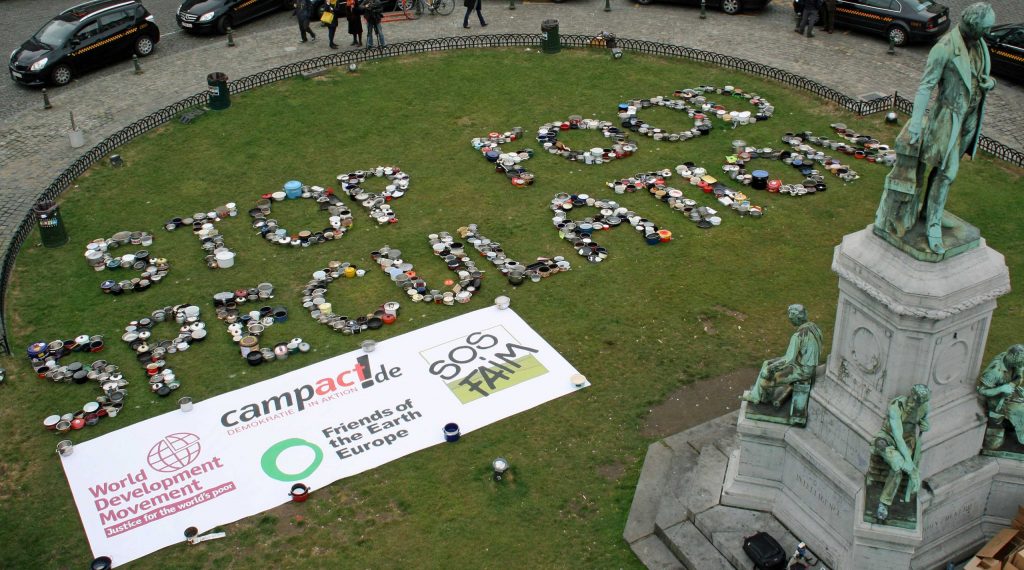Food speculation by banks and financial institutions continues to contribute to rapid and unpredictable swings in food prices, which hit the most vulnerable hardest. Today, finance ministers have the opportunity to curb this destructive practice, as the council of economic and financial affairs discusses its position on the Markets in Financial Instruments Directive (MiFID) – which sets new regulations for financial markets.
MiFID offers an opportunity to strictly regulate European financial markets. But intense lobbying from industry, alongside dangerous loopholes, could undermine the directive’s power to prevent speculators from profiteering at the expense of the world’s most vulnerable.
Corporate lobbying on MiFID far outweighs the voice of civil society and the interests of citizens. Lobbying has been conducted predominantly by representatives from the banking, financial and energy sectors [1], those who stand to profit the most by weakening MiFID. Lobby targets have included the members of the ECON committee of the European Parliament, leading on the MiFID dossier [2].
Anne van Schaik, accountable finance campaigner at Friends of the Earth Europe said: “Food speculation profits financial institutions, and costs the world’s most vulnerable the food on their plates. Members of the European Parliament, especially from the ECON committee, have been heavily targeted by financial lobbyists, drowning out the voices and interests of the people.”
If finance ministers are to ensure strong regulation, without loopholes, they must resist this concerted and targeted push by the financial, banking and energy sector. European regulators must introduce caps on the number and size of bets speculators can make in order to curb excessive speculation. These caps must be set at the European level, to prevent financial institutions active across numerous Eureopan countries sidestepping limits. They must also be comprehensive, including activities like Over the Counter (OTC) contracts, and applicable to all types of traders. Gernuine transparency is also key, to ensure that all futures contracts are cleared on a daily basis through regulated and transparent exchanges.
In addition, we are calling for a mandatory registration of corporate lobbyist and full proactive disclosure from the European Commission and Council so that the public knows which companies and institutions are lobbying. This is a first step towards promoting accountability of the decisions being made at the EU level towards people and planet
European policy-making must put the hunger of people before the hunger of financial institutions. It’s time to bring an end to excessive and harmful speculation, and to the environmental and social damage done by financial markets.
***
NOTES:
[1] Including Eurogas, GDF Suez and Vattenfall, with events and conferences sponsored by some of the big players of the financial sector, including Deutsche Bank, HSBC and JP Morgan. [2] Sharon Bowles, chair of the ECON committee, received 34 meeting requests from industry since early 2012; Sven Giegold received no less than 66 meeting requests and 13 event invitations. Key Swinburne also disclosed 62 meeting requests and 2 event invitations. This comes on top of numerous lobby events and conferences. This information was compiled manually between April 29th and May 12th, based on information available online and on responses to access to documents requests filed by Friends of the Earth Europe.






